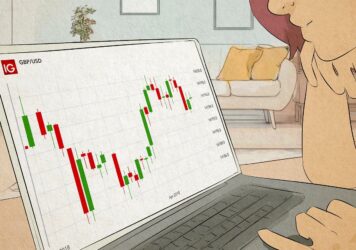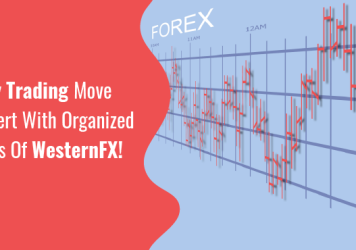What are Forex Trading Hours?
Forex trading, or foreign exchange trading, is one of the largest and most liquid financial markets globally. With a daily trading volume exceeding $6 trillion, understanding the trading hours can significantly impact your trading strategy and overall success in the market. In this article, we will delve into the intricacies of forex trading hours, the importance of these hours for investors, the key trading sessions, and how to navigate them effectively.
Understanding the Global Forex Market Time Zones
The forex market operates 24 hours a day, five days a week, owing to its global nature. It opens on Sunday evening and closes on Friday evening, allowing traders worldwide to participate in currency trading without interruption. However, these trading hours are influenced by various time zones, which can create opportunities and challenges for investors.
Forex Trading Hours Overview
| Market | Opening Time (GMT) | Closing Time (GMT) |
|---|---|---|
| Sydney | 10:00 PM | 7:00 AM |
| Tokyo | 12:00 AM | 9:00 AM |
| London | 8:00 AM | 5:00 PM |
| New York | 1:00 PM | 10:00 PM |
The Importance of Forex Trading Hours for Investors
Understanding the forex trading hours is crucial for several reasons:
- Liquidity: Different trading hours bring varying levels of liquidity. Major sessions like London and New York see high trading volumes, reducing spreads and slippage.
- Volatility: Certain hours are more volatile, offering potential for larger price movements.
- Strategic Planning: Awareness of trading hours enables traders to plan their trades, set stop-loss levels, and manage risks better.
Key Trading Sessions: London, New York, and Tokyo
The forex market is divided into three main trading sessions: London, New York, and Tokyo. Each session has its unique characteristics:
London Session
- Time: 8:00 AM to 5:00 PM GMT
- Overview: The London session is the largest and most influential trading session due to the presence of numerous financial institutions.
New York Session
- Time: 1:00 PM to 10:00 PM GMT
- Overview: The New York session overlaps with the London session for a few hours, creating high volatility and significant trading opportunities.
Tokyo Session
- Time: 12:00 AM to 9:00 AM GMT
- Overview: The Tokyo session is important for trading Asian currencies and typically sees lower volatility compared to the London and New York sessions.
Overlapping Trading Hours: Maximizing Opportunities

One of the most advantageous features of forex trading is the overlapping trading hours between sessions, particularly between the London and New York sessions. During this overlap, traders can take advantage of increased liquidity and volatility, which often leads to better trading opportunities. Here’s a breakdown:
- London/New York Overlap: 1:00 PM to 5:00 PM GMT
- Benefits:
- Increased trading volume and tighter spreads.
- Greater price movement, enhancing the potential for profit.
How Daylight Saving Affects Forex Trading Hours
Daylight Saving Time (DST) can cause confusion for traders as it alters the operating hours of the forex market. For instance, the time shifts that occur in spring and fall may affect the opening and closing times of various trading sessions. It’s essential for traders to adjust their trading schedules accordingly.
Key Points:
- In the spring, when clocks move forward, the trading hours shift forward by one hour.
- In the fall, when clocks move back, the trading hours shift back by one hour.
- Not all countries observe DST, leading to discrepancies in trading hours.
Tips for Traders to Navigate Forex Trading Hours Effectively
1. Familiarize Yourself with Major Time Zones: Understanding the time zones of the major financial centers will help you know when to be active and when to expect volatility.
2. Use Economic Calendars: Keep an eye on the economic calendar for major announcements, as these can significantly impact trading volumes and volatility.
3. Plan Your Trades: Schedule your trades around the peak trading hours for the currency pairs you are interested in to maximize potential profits.
4. Avoid Trading During Low Liquidity Periods: Trading during off-hours can lead to wider spreads and slippage, impacting your profit margins.
5. Monitor the Impact of News Releases: High-impact news can lead to rapid price movements; be prepared for changes during these times.
6. Utilize Trading Tools: Many trading platforms offer tools to alert you when certain market conditions are met during peak hours.
7. Adjust for DST: Be mindful of the changes that occur during Daylight Saving Time to ensure accurate trading schedules.
Frequently Asked Questions (FAQ)
Q1: How does knowing forex trading hours help in my trading strategy?
A1: Knowing the trading hours allows you to plan trades during periods of high liquidity and volatility, enhancing your chances of profit.
Q2: What are the best times to trade forex?
A2: The best times to trade are during the overlapping hours between the London and New York sessions, typically from 1:00 PM to 5:00 PM GMT.
Q3: Does forex trading take place on weekends?
A3: No, the forex market is closed on weekends, from Friday evening to Sunday evening.
Q4: How does Daylight Saving Time affect forex trading hours?
A4: Daylight Saving Time can shift trading hours forward or backward, causing adjustments in when sessions overlap and peak trading occurs.
Q5: Can I trade forex during low liquidity hours?
A5: While you can trade during low liquidity hours, it is generally discouraged due to wider spreads and increased slippage risks.
Q6: Are all currency pairs active at all times?
A6: No, certain currency pairs are more active during specific sessions, such as Asian pairs during the Tokyo session and European pairs during the London session.
Q7: How can I stay updated on forex trading hours?
A7: You can use economic calendars, trading platforms, or financial news websites to stay updated about trading hours and economic events that may affect the market.
Understanding forex trading hours and how to navigate them can significantly enhance your trading performance and risk management strategies. By leveraging this knowledge, traders can take advantage of the vast opportunities presented in the global forex market.











